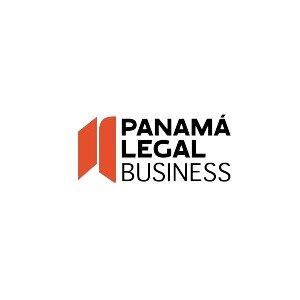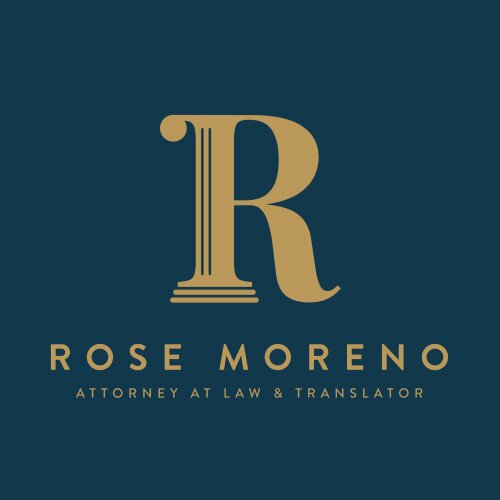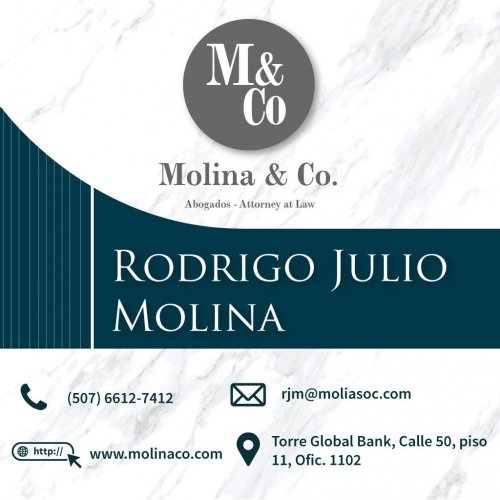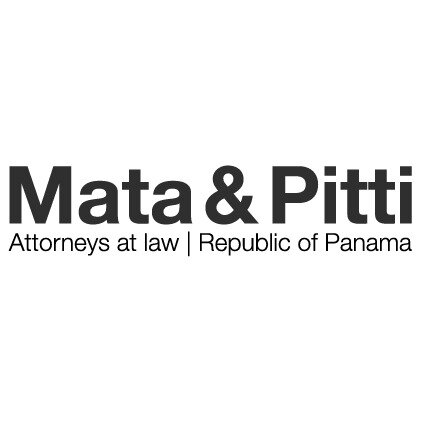Best Private Equity Lawyers in Panama
Share your needs with us, get contacted by law firms.
Free. Takes 2 min.
Or refine your search by selecting a city:
List of the best lawyers in Panama
About Private Equity Law in Panama
Private Equity in Panama represents a growing and vital sector of the country's financial ecosystem. Driven by investor interest in Latin America and Panama's strategic geographical and economic position, private equity covers transactions such as venture capital, buyouts, and direct investments in private companies. The legal framework surrounding private equity in Panama is designed to encourage domestic and foreign investments, offering flexibility of structures, investor protections, and clear procedures for fund formation and operations. Investors benefit from Panama's stable regulatory environment, modern corporate laws, and attractive tax policies, making it a favorable jurisdiction for private equity transactions.
Why You May Need a Lawyer
Engaging legal assistance is essential when dealing with private equity matters in Panama due to the complexity and importance of ensuring compliance with local regulations. Here are some common situations where a lawyer can help:
- Establishing private equity funds or investment vehicles
- Negotiating and drafting investment agreements and contracts
- Assisting with due diligence and regulatory compliance
- Navigating tax planning and structuring options
- Managing disputes, exits, or liquidation processes
- Ensuring cross-border transaction compliance
- Providing advice on licenses and registrations with Panamanian authorities
Having a legal expert ensures that your interests are protected and that each step of the investment process is handled efficiently and in accordance with the law.
Local Laws Overview
Private equity in Panama is shaped by a combination of corporate, tax, and financial laws. Key aspects include:
- Corporate Structures: Panama offers flexible structures for fund formation, such as corporations, limited liability companies, trusts, and private interest foundations.
- Fund Regulations: Depending on size and investor type, some funds may be subject to rules under the Superintendency of the Securities Market (SMV), particularly if they operate as collective investment schemes.
- Taxation: Income derived from sources outside Panama is generally tax-exempt for Panamanian entities, offering advantages for international investors.
- Foreign Investment Laws: Panama encourages foreign investment, granting equal rights to local and foreign investors and guaranteeing legal stability for investment projects in certain sectors.
- Anti-Money Laundering: Compliance with anti-money laundering and counter-terrorist financing regulations is mandatory for all financial entities, including private equity structures.
- Exit Mechanisms: Legal provisions support various exit routes, such as IPOs, sales, and redemptions, with corporate procedures clearly outlined in law.
Understanding and navigating these laws is critical for private equity operations and helps ensure transparency and protection for all parties involved.
Frequently Asked Questions
What is private equity in Panama?
Private equity in Panama involves investing in private companies, usually through funds or direct investments, with the goal of achieving long-term capital growth or strategic control of the business.
Can foreigners invest in private equity in Panama?
Yes, Panama welcomes foreign investors, offering the same legal protections and rights as those available to Panamanian nationals. There are no restrictions on foreign ownership in most sectors.
What types of legal structures are commonly used for private equity funds?
Common structures include corporations (Sociedad Anónima), limited liability companies, trusts, and private interest foundations, each offering unique advantages depending on the needs of investors.
Are private equity funds regulated in Panama?
Some private equity funds, especially those considered collective investment schemes, are regulated by the Superintendency of the Securities Market. Requirements vary depending on the size and type of investors involved.
What are the main tax considerations for private equity investors?
Income from non-Panamanian sources is generally not taxed in Panama, making it favorable for international investors. However, legal advice is necessary to ensure compliance with all tax obligations.
How does Panama protect minority investors in private equity deals?
Panamanian corporate law provides various protections for minority shareholders, including rights to information, voting, and, in certain cases, withdrawal or appraisal rights during mergers or reorganizations.
What is the process for setting up a private equity fund in Panama?
The process involves selecting an appropriate legal structure, drafting founding documents, registering with relevant authorities if necessary, and ensuring compliance with anti-money laundering rules. Legal counsel can streamline this process.
Do I need a license to manage a private equity fund in Panama?
In certain cases, especially when funds are open to the public or fall under specific regulatory definitions, fund managers may require licensing or registration with the SMV.
What exit options are available for private equity investments in Panama?
Exit options include trade sales, initial public offerings, mergers or acquisitions, and redemption or buy-backs, depending on the agreements in place and the nature of the investment.
How are disputes handled in private equity transactions?
Disputes are typically resolved through negotiation, mediation, or, if necessary, arbitration or litigation. It is common to include dispute resolution clauses in investment agreements to specify the preferred mechanism.
Additional Resources
If you are seeking more information or require support regarding private equity in Panama, the following resources may be helpful:
- Superintendency of the Securities Market (Superintendencia del Mercado de Valores) - the main regulatory authority for funds and capital markets
- Ministry of Economy and Finance - provides information on investment opportunities and regulations
- Panama Bar Association - lists qualified legal professionals specializing in private equity and financial law
- Panama Chamber of Commerce, Industry, and Agriculture - a resource for networking and legal information related to business operations
Consulting these organizations can provide valuable insights and ensure you are working within Panama’s legal framework.
Next Steps
If you are considering private equity investments or establishing a fund in Panama, here are recommended next steps:
- Define your investment objectives and potential structure for your investment or fund
- Consult with a qualified attorney experienced in private equity and Panamanian law
- Gather all necessary documentation and information related to your investment or business plan
- Ensure all compliance and regulatory requirements are met, especially regarding tax and anti-money laundering
- Establish clear agreements and dispute resolution mechanisms for all parties involved
- Engage with local authorities and industry groups for additional support and networking opportunities
Seeking specialized legal advice early in the process will help ensure that your private equity activities in Panama are structured for success and compliant with all relevant laws.
Lawzana helps you find the best lawyers and law firms in Panama through a curated and pre-screened list of qualified legal professionals. Our platform offers rankings and detailed profiles of attorneys and law firms, allowing you to compare based on practice areas, including Private Equity, experience, and client feedback.
Each profile includes a description of the firm's areas of practice, client reviews, team members and partners, year of establishment, spoken languages, office locations, contact information, social media presence, and any published articles or resources. Most firms on our platform speak English and are experienced in both local and international legal matters.
Get a quote from top-rated law firms in Panama — quickly, securely, and without unnecessary hassle.
Disclaimer:
The information provided on this page is for general informational purposes only and does not constitute legal advice. While we strive to ensure the accuracy and relevance of the content, legal information may change over time, and interpretations of the law can vary. You should always consult with a qualified legal professional for advice specific to your situation.
We disclaim all liability for actions taken or not taken based on the content of this page. If you believe any information is incorrect or outdated, please contact us, and we will review and update it where appropriate.
Browse private equity law firms by city in Panama
Refine your search by selecting a city.

















